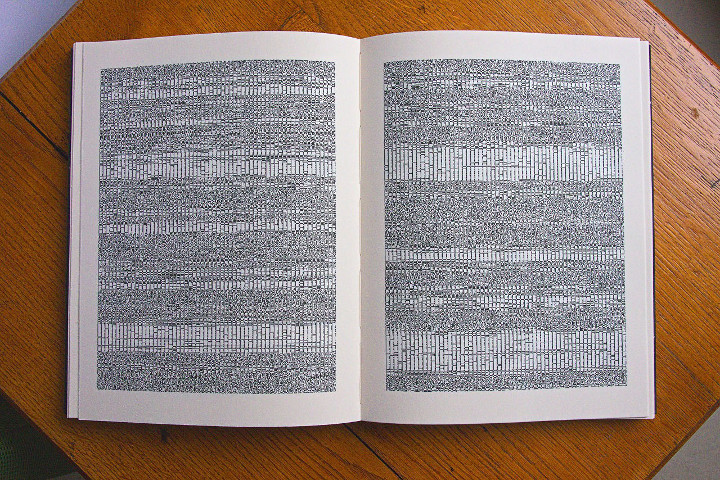Louise Craven (ed.): What are Archives?: Cultural and Theoretical Perspectives: A Reader (2008)
Filed under book | Tags: · archive, archiving, library, preservation, storage

“This collection of essays breaks new ground in archival studies in the UK where professional archival texts have traditionally concentrated on the how, not the why, of archival work. Studies of the theoretical role of, for example, the archive and the text or the archive and political power, have meanwhile been undertaken in other academic disciplines where there is an established forum for the discussion of related issues. This book invites the archivist to join that arena of debate, whilst appealing to all those interested in archives from other disciplines; the authors encourage archivists to step away from the practicalities of keeping archives to consider what it is they actually do in the cultural context of the early 21st century.
The wider context of technological innovation and the internet form the backdrop to this collection. The book explores change and continuity in the archival paradigm, the textual nature of archives and asks if views of manuscripts and personal papers are changing; it looks at specific developments in community archives, at concepts of identity and culture in archives and it presents the fruits of innovative studies of users of archives. Taken together, these essays, written by leading experts in the field, provide a new understanding of the role of the archive today.”
Publisher Ashgate Publishing, 2008
ISBN 0754673103, 9780754673101
196 pages
via Jo Morfin
PDF (updated on 2020-9-8)
Comments (5)Frohne, Schieren, Guiton (eds.): Present Continuous Past(s): Media Art. Strategies of Presentation, Mediation and Dissemination (2005)
Filed under book | Tags: · archive, archiving, art history, conservation, database, media art, preservation, storage, video art

“With a history of more than 30 years, media art plays an increasingly important role in the international discourse on contemporary art. The reception of canonical video works and electronic media installations is however restricted to temporary and locally defined displays in museum exhibitions or confined to incomplete catalogue documentations. This volume provides a unique combination of theoretical reflections on the reproducibility, preservation of authenticity and juridical implications of emulation techniques with practical approaches to archiving methods and commercial aspects of media art’s accessibility. It is an indispensible guide to the pro’s and con’s for new forms of de-centralized systems of mediation and the growing demands for liberal rules and easy access to online-presentations of media art. Uncomparable to other current publications, the book offers a practical manual with checklists for relevant websites and content profiles of major distribution companies.”
With contributions by Ursula Frohne, Ulrike Rosenbach, Sabine Flach, Elke Bippus and Dirck Möllmann, Mona Schieren, Lydia Haustein, Dieter Daniels, Katharina Ammann, Hans D. Christ and Stan Douglas, Dennis Del Favero / Neil Brown / Jeffrey Shaw / Peter Weibel, Jean-François Guiton, Rudolf Frieling, Monika Fleischmann / Wolfgang Strauss, Rens Frommé / Sandra Fauconnier, Lori Zippay, Bart Rutten.
Edited by Ursula Frohne, Mona Schieren, Jean-Francois Guiton
Publisher Springer, Vienna, 2005
Schriftenreihe der Hochschule für Künste Bremen series, 2
ISBN 3211254684, 9783211254684
223 pages
via Jo Morfin
PDF (updated on 2020-9-26)
Comments (4)La Société Anonyme: The SKOR Codex (2012)
Filed under artist publishing | Tags: · archive, archiving, art, code, data, digital heritage, media art, preservation, print, storage

The SKOR Codex is a printed book which will be sent to different locations on earth. It contains binary encoded image and sound files selected to portray the diversity of life and culture at the Foundation for Art and Public Domain (SKOR), Amsterdam, and is intended for any intelligent terrestrial life form, or for future humans, who may find it. The files are protected from bitrot, software decay and hardware failure via a transformation from magnetic transitions on a disk to ink on paper, safe for centuries. Instructions in a symbolic language explain the origin of the book and indicate how the content is to be decoded.
La Société Anonyme noted that “the package will be encountered and the book decoded only if there will be advanced civilizations on earth in the far future. But the launching of this ‘bottle’ into the cosmic ‘ocean’ says something very hopeful about art on this planet.” Thus the record is best seen as a time capsule and a statement rather than an attempt to preserve SKOR for future art historians. The SKOR Codex is a project by La Société Anonyme.
Published in July 2012
304 pages
Interview with authors (Annet Dekker, Open!, 2014).
Comment (0)
